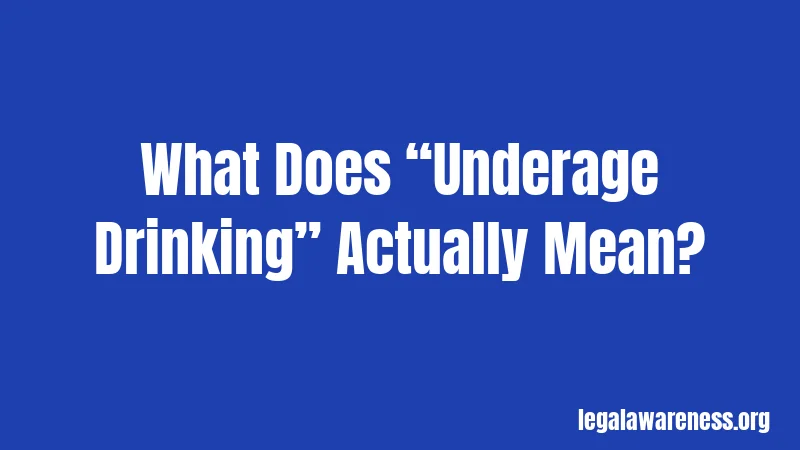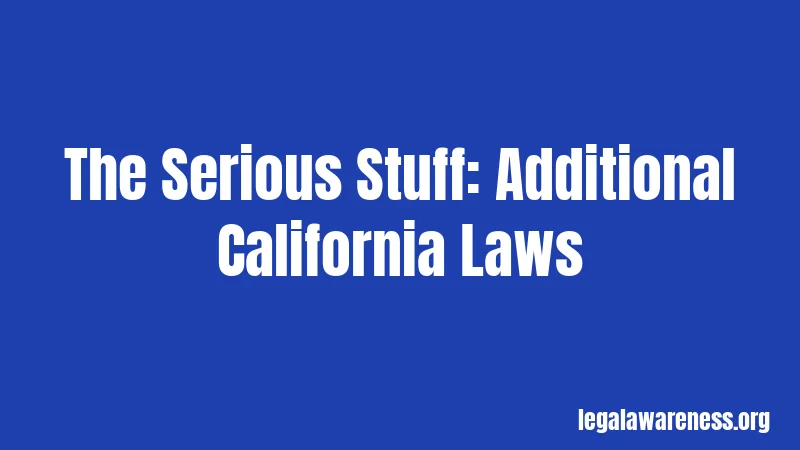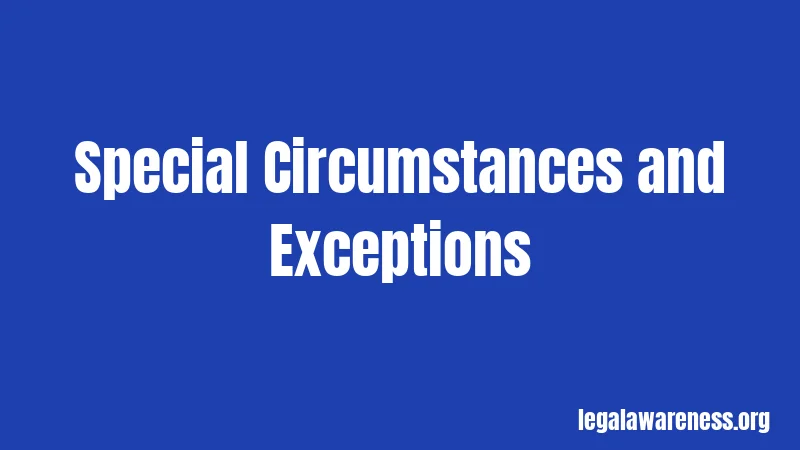California Minor Drinking Laws (2026): Your Complete Guide to Legal Consequences
Here’s something most teenagers don’t think about until it’s too late: California has some seriously strict laws about underage drinking. Like, really strict. We’re talking fines, criminal records, and consequences that can follow you into college and beyond. But don’t worry. This guide breaks down exactly what you need to know about drinking laws in California so you can make informed decisions.
Whether you’re a parent trying to understand the rules, a young person curious about the legal side of things, or just someone who wants to know what applies to you, we’ve got the real details here. No legal jargon. Just straight facts about what’s illegal and what happens if you break the law.
What Does “Underage Drinking” Actually Mean?

In California, you’re considered underage if you’re under 21 years old. Pretty simple, right? The state treats anyone in that age group differently under the law when it comes to alcohol. Basically, you can’t legally buy it, consume it, or be in possession of it without facing serious consequences.
But here’s the thing that surprises people: the law goes way further than just “no drinking.” It covers buying alcohol, possessing it, even trying to fool someone about your age. These rules exist because California wants to protect young people from the health and safety risks of underage drinking. Trust me, they take this seriously.
California’s Basic Underage Drinking Laws
Drinking Alcohol Under 21
Let’s start with the most obvious one. If you’re under 21, drinking alcohol in California is illegal. Period. This includes beer, wine, liquor, and basically any drink with alcohol in it. You can’t drink it at home, at a party, in a car, or anywhere else. The law doesn’t care about the location or the amount.
Not sure if this applies to you? Here’s the simple test: Are you under 21? Then it’s illegal for you to drink. Pretty straightforward.
The consequences for getting caught can be harsh. You could face fines ranging from $250 to $1,000 depending on whether it’s your first offense or a repeat violation. On top of that, you might be ordered to complete an alcohol education program or perform community service. Not exactly fun ways to spend your time.
Possessing Alcohol Under 21
Possession is where a lot of people get caught. Basically, you can’t have alcohol in your hands, in a bag you’re carrying, or anywhere else you have control over it. Even if you’re not drinking it, just having it is illegal.
Okay, pause. This part is important. You can get in trouble for possession even if you’re not actively drinking. Standing at a party holding a beer? That’s possession. Having a bottle in your backpack? Possession. Carrying alcohol into a store? You get the idea. It doesn’t matter if you plan to drink it or give it to someone else. Having it is the crime.
The penalties for possession are similar to drinking. You’re looking at fines from $250 to $1,000, and you might have to complete an alcohol education program. If it’s a second or third offense, penalties increase. Plus, a conviction goes on your criminal record, which can affect college applications, job prospects, and other opportunities down the road.
Attempting to Buy Alcohol
This one trips up a lot of young people. You can’t try to purchase alcohol while underage, and you definitely can’t use a fake ID to do it. California law makes it illegal to attempt to buy alcohol if you’re under 21.
What counts as an attempt? Trying to buy it at a store. Using someone else’s ID. Asking an older friend to buy it for you. Basically, any action toward getting alcohol is against the law. Many people assume they’re only in trouble if they actually succeed, but that’s not true.
If you get caught attempting to purchase alcohol, you face fines of $250 to $1,000. You might also have to do community service. If you used a fake ID, that’s an additional crime with its own penalties. Plus, if you have a driver’s license, it can be suspended for a year.
The Serious Stuff: Additional California Laws

Fake IDs and Forged Documents
This gets into serious territory, honestly. Using someone else’s ID or using a fake ID to buy alcohol is a crime in California. This isn’t just a minor infraction. We’re talking misdemeanor charges here.
If you’re caught with a fake ID, you could face up to six months in county jail. You might also face fines up to $250, plus the court can order you to do community service. But the worst part? If you have a driver’s license, California will suspend it for one year. That means no driving for a whole year.
Many people don’t realize how serious this is until it happens. A friend asked me about this last week. They got caught using someone’s ID at a bar. The consequences were way worse than they expected. Don’t be like that. It’s not worth the risk.
Providing Alcohol to Minors
Here’s where adults get involved. It’s also illegal for anyone 21 or older to give, sell, or provide alcohol to someone under 21. This applies even if the adult is a parent or guardian. Yes, really. Even your own parents can’t legally give you alcohol in California.
If you’re the one receiving the alcohol from an adult, that person is breaking the law, not you. However, you could still get in trouble for possessing or consuming it. So you’re both at risk. The adult could face criminal charges, hefty fines, and even jail time. You could face the standard underage drinking penalties.
This one actually makes sense when you think about it. California wants to eliminate any easy access to alcohol for minors. No exceptions, no “it’s okay at home,” nothing. The rule is absolute.
DUI or DWI While Underage
Now things get really serious. Driving under the influence while underage in California has specific, extra-harsh penalties. You don’t even have to have a high blood alcohol level to get in trouble. The law is zero-tolerance for drivers under 21.
What does that mean? A driver under 21 can get a DUI conviction with a blood alcohol level of just .01%. That’s basically one drink. Compare that to adults, who are considered legally drunk at .08%. The law is way stricter for young people, and it applies even if you’re not technically “drunk.”
If you get a DUI while underage, you’re facing automatic driver’s license suspension for a minimum of one year. You could also face fines from $250 to $1,000, mandatory DUI school, probation, and even jail time. Plus, a DUI conviction stays on your record for years. This affects college applications, job hunting, insurance rates, and pretty much everything else in your life.
Penalties and Consequences Explained
Let’s get specific about what happens when you break these laws. Understanding the actual consequences helps people take this seriously.
First-Time Underage Drinking Offense
For a first offense of drinking or possessing alcohol, you’re looking at fines from $250 to $1,000. You’ll probably have to complete a 12-week alcohol education program. You might face probation for up to six months. Some courts also require community service. And yes, it goes on your criminal record.
Second Offense
If you get caught again within five years, penalties get worse. Fines jump to $500 to $1,000. You’ll need an alcohol education program, but a more extensive one. Probation extends up to a year. You could face up to three months in juvenile detention or jail, depending on your age. This is when things stop feeling like a slap on the wrist and start feeling real.
Third and Subsequent Offenses
By the third offense, you’re in serious trouble. Fines can reach up to $1,000 or more. Probation extends for longer periods. Jail time becomes likely, not just a possibility. Your driver’s license could be suspended. The court might order you to wear a SCRAM bracelet, which monitors your alcohol use 24/7.
Criminal Record Impact
Here’s what people miss: a conviction follows you. Colleges ask about it. Employers ask about it. It affects rental applications, financial aid, and professional licenses. A criminal record from an underage drinking conviction can seriously limit your opportunities for years after the offense.
Wait, it gets better. If you get convicted of providing alcohol to minors and someone gets hurt or dies, you could face even more serious charges, including felonies. That’s the kind of consequence that changes your entire life.
Special Circumstances and Exceptions

Medical Emergencies
Hold on, this part is important. California has a limited medical exception. If someone is experiencing alcohol poisoning or another medical emergency related to alcohol, calling 911 for help won’t automatically result in criminal charges for the sick person. The “Good Samaritan” law protects the person who called for help.
However, this protection is limited. It applies specifically to the person who calls 911, not necessarily to everyone present. And it doesn’t mean you won’t face consequences. It just means the focus shifts to getting medical help rather than prosecution. Don’t think this is a free pass to drink dangerously.
Parent or Guardian Providing Alcohol
I mentioned this earlier, but it’s worth repeating. Even if your parents give you alcohol at home, it’s illegal in California. Some states allow parents to give alcohol to their children, but California doesn’t. The law is absolute: no one under 21 can legally drink, period.
This surprises a lot of families who come from cultures where young people have wine with meals. In California, that’s still against the law, and both the parent and the young person could face consequences.
Private Property
The location doesn’t matter. You can’t legally drink on private property if you’re underage. Not at home. Not at a friend’s house. Not at a private party. The law applies everywhere in California.
How to Stay Out of Trouble
You’re not alone if this feels overwhelming. Most young people don’t understand how strict these laws actually are. Here’s what you need to do to protect yourself.
Make Smart Choices
The best way to avoid underage drinking penalties is simple: don’t drink if you’re under 21. I know that sounds obvious, but a lot of people rationalize it or think the consequences won’t apply to them. They do. The laws are enforced. The consequences are real.
Know Your Rights
If you’re ever stopped by police or questioned about alcohol, you have rights. You can refuse searches without a warrant. You can ask for a lawyer. You don’t have to answer questions about drinking. Knowing these rights can protect you in a tough situation.
Never Use or Accept a Fake ID
Seriously, don’t do this. The penalties are severe, and the consequences last years. It’s not worth it. If someone offers you a fake ID or asks you to use one, say no and walk away.
Don’t Provide Alcohol to Minors
If you’re 21 or older, remember: providing alcohol to anyone under 21 is a crime. That includes letting underage people drink at parties you host. You could face criminal charges, fines, and jail time. If someone gets hurt, the consequences are even worse.
Understand the DUI Zero-Tolerance Law
If you drive, remember the zero-tolerance rule for drivers under 21. Even one drink can result in a DUI conviction. The law is stricter for you than for adults, and the consequences are serious. Don’t drink and drive. Seriously.
Frequently Asked Questions
Can my parents legally give me alcohol in California?
No. Even parents cannot legally provide alcohol to minors in California. It’s illegal regardless of where it happens or what the parent’s intentions are. Both the parent and the minor could face legal consequences.
What happens if I get caught with alcohol at a party?
You’ll likely face possession charges, fines, community service, and an alcohol education program. It goes on your criminal record. Plus, if the party gets broken up, everyone with alcohol faces the same penalties.
Can I get a DUI if I’m under 21?
Yes, and it’s way easier than for adults. You can get a DUI with a blood alcohol level as low as .01%. The penalties are serious and include license suspension, fines, jail time, and a criminal record.
What’s the difference between a misdemeanor and a felony for underage drinking?
Most underage drinking charges are misdemeanors. However, if you provide alcohol to a minor and they get hurt, or if you have multiple serious violations, charges can escalate to felonies. Felonies carry prison time and permanent criminal records.
Will an underage drinking conviction affect my college applications?
Many colleges ask about criminal convictions. A conviction can hurt your chances of admission, financial aid, or acceptance into certain programs. Honesty is required, and lying about it makes things worse.
What should I do if I’m struggling with alcohol use?
If you’re worried about your drinking habits, talk to a parent, school counselor, or doctor. California has resources for young people struggling with substance use. Getting help early is way better than facing legal consequences later.
Final Thoughts
Now you know the real deal with California’s underage drinking laws. They’re strict, the consequences are serious, and they affect your future in real ways. A criminal record from an underage drinking conviction can follow you for years, impacting college, jobs, and other opportunities.
The good news? You have control over this. Make smart choices. Understand your rights. Say no to situations that could get you in trouble. And remember: one mistake doesn’t have to define your future, but the best choice is not to make that mistake in the first place.
If you’re struggling with alcohol, talk to someone. If you have legal questions, talk to a lawyer. Stay informed, stay safe, and take these laws seriously. They’re worth taking seriously.
References
California Department of Justice – Underage Drinking Laws https://oag.ca.gov/consumers/underage-drinking
California Alcoholic Beverage Control Laws (Division 10 of the Business and Professions Code) https://leginfo.legislature.ca.gov/faces/codes_displayText.xhtml?lawCode=BPC&division=10
California DUI Law for Drivers Under 21 https://www.dmv.ca.gov/portal/driver-licenses-identification-documents/driver-license/underage-drivers/
Stanford University Law School – California Alcohol Laws https://www.stanford.edu/group/ali/stanford-cdapp/database/facts_issue_alcohol.htm
California Alcohol Policy and Youth Guidance https://www.public.health.ca.gov/programs/substance-use-disorder-prevention/
